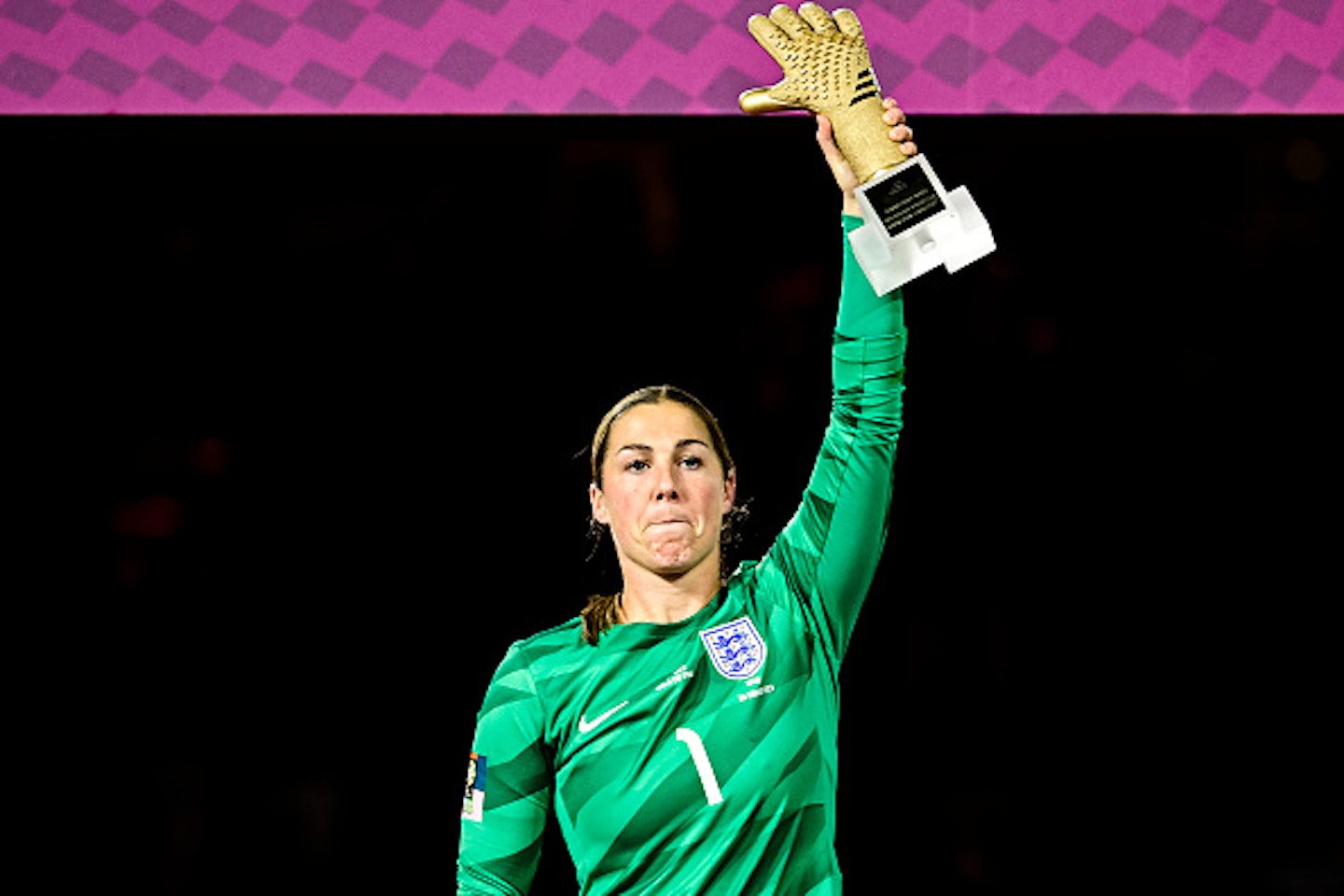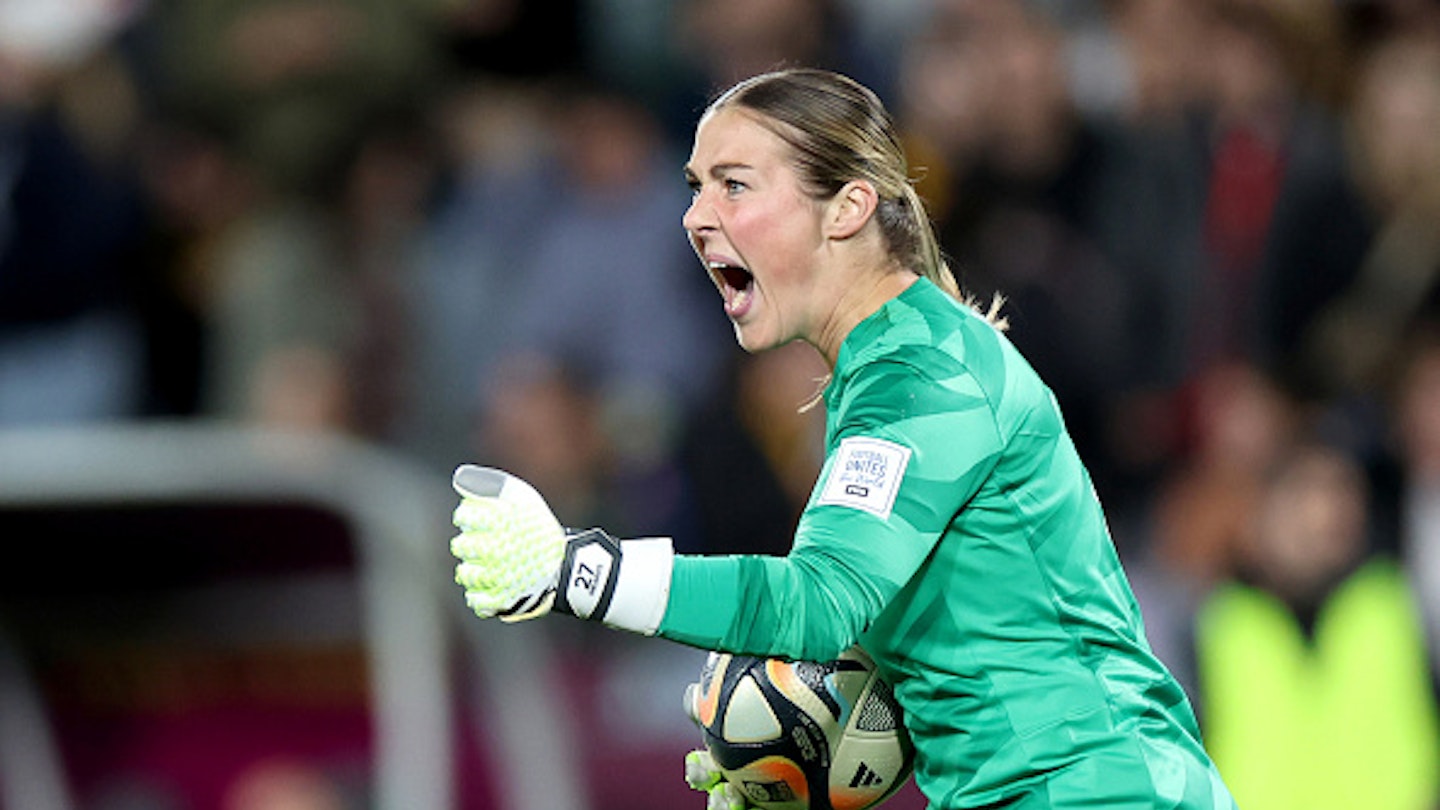England may not have won the Women’s World Cup final on Sunday, but the Lionesses were certainly victorious in inspiring us all. A huge winner and icon from this year’s tournament is England goalkeeper, Mary Earps. Her save of Spain’s Jennifer Hermoso's penalty was a moment so legendary, fans are even having it tattooed on them.
Earps is undoubtedly one of the most in-demand female footballers in the world right now. She won the Golden Glove for the best goalkeeper of the Women’s World Cup, was awarded Best FIFA Women’s Goalkeeper for 2022 and her team, Man United, have rejected what’s been described as a ‘significant’ offer from an as yet unnamed team because her talent is so precious.
And yet, a 150,0000-person petition was required for Nike to finally agree to sell her kit. From the day the tournament began in July, conversations about Nike’s refusal to sell Earps’ goalie jersey with the rest of the womens’ kits became louder and louder.
Fans made DIY shirts in frustration and protest, and former sports minister and Conservative MP Tracey Crouch submitted a motion in parliament calling on Nike to release a jersey. And yet, it’s taken until nearly a week after the tournament has finished for Nike to finally make a U-turn.
Yesterday, the sports brand released a statement confirming that ‘limited quantities’ of women's goalkeeper jerseys for England, the US, France and the Netherlands teams will be retailed. ‘We recognise that during the tournament we didn’t serve those fans who wished to show their passion and support to the squad’s goalkeepers,’ the statement reads. ‘We are committed to retailing women’s goalkeeping jerseys for major tournaments in the future.’
Speaking with Guardian Australia before Nike made its U-turn, Earps called the fight for her jersey to be recognised and sold ‘hugely disappointing and very hurtful’, with the situation affecting how accessible goalkeeping feels to young people.

‘It is the young kids I am most concerned about,’ she said. ‘What you are saying is that goalkeeping isn’t important, but you can be a striker if you want. That is why the participation rate is so much lower.’
Earps had even previously offered to pay for the jersey to be produced herself, but had been rebuffed.
While her various accolades and world standing makes the hesitation over recognising her (and her Jersey) even more baffling, at the very least Earps deserves to be valued the same as her teammates. A petition should not have been necessary to push for this win.
The very act of reaching her position in women’s football – not to mention the number of fans, young and old, that she’s inspiring – should warrant recognition.
This fight is yet another example of women having to work twice as hard and achieve just as much before they reach the level of validation required for their labour to be recognised. The fact that Earps is a world-class player, an expert in her craft and a role model for so many, and is still facing these hurdles, suggests that we still have a way to go when it comes to fully recognising and empowering women and their talent.
So while we congratulate Mary Earps on her latest win – and all the aspiring goalkeepers who will be inspired by it – it’s important that we keep a firm eye on the future. We must ensure that these proposed ‘commitments’ by major brands to support women are kept, and don’t hinder our progress and power.
